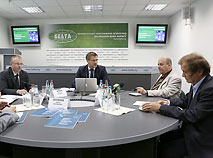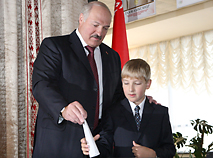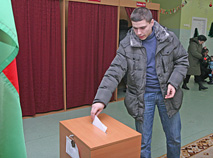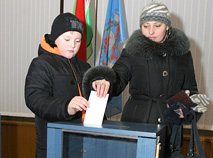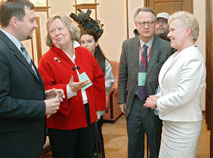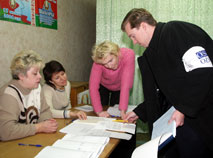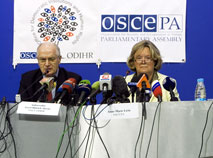Elections in Belarus
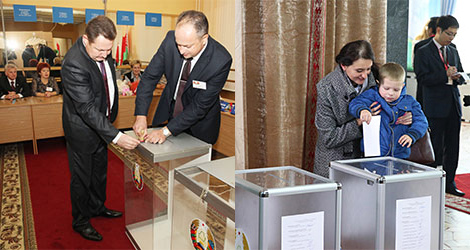
According to the Constitution of the Republic of Belarus, its citizens have the right to vote and stand for governmental bodies on the basis of universal, equal, direct or indirect suffrage by secret ballot.
All elections in Belarus are direct, except for the elections to the Council of the Republic of the National Assembly whose members are elected indirectly.
Every Belarusian citizen over 18 is eligible to vote. Citizens who are declared legally incapable by court or serve a prison sentence have no right to vote.
Several types of elections are held in the Republic of Belarus: elections of the President of the Republic of Belarus, deputies of the House of Representatives and members of the Council of the Republic, deputies of local Councils of Deputies.
The elections in Belarus are held by election commissions.
Deputies, candidate proxies, members of political parties and public associations, representatives of labor collectives, mass media outlets as well as foreign observers have the right to monitor an electoral process.
Rights of Observers:
-
to be present at the meetings of election commissions;
-
to be present during sealing of ballot boxes;
-
to be present at polling stations on election day;
-
to attend early voting and voting at the residence of voters;
-
to monitor handover of ballot papers, electoral process and its compliance with the Electoral Code;
-
to present proposals and comments to the chairman of an election commission;
-
to obtain information on the vote count and the protocols of the relevant commissions on the results of elections;
-
to observe vote recount (in case it is held);
-
to study protocols of commissions on election results.
History of Elections in Belarus
The elections were held on the territory of Belarus as early as in the Middle Ages. The noblemen elected deputies to the highest representative body - the Seym, and petty bourgeoisie – to the city councils.
However, after the Belarusian territories were incorporated into the Russian Empire these traditions fell into oblivion for some time.
First presidential elections in the independent Belarus took place in 1994 and resulted in a landslide victory of the opposition candidate Aleksandr Lukashenko, who beat the then Premier Vyacheslav Kebich, the ex-speaker of the Parliament Stanislav Shushkevich and the leaders of major Belarusian political parties - communists (BCP) and nationalists (BPF).
Since then presidential elections were held in 2001, 2006, 2010, 2015, and 2020, parliamentary elections in 1995, 2000, 2004, 2008, 2012, 2016, 2019, 2024 and local elections in 1995, 1999, 2003, 2007, 2010, 2014, 2018, 2024.
In 2024 Belarus will hold a single voting day (the last Sunday of February) to elect members of the House of Representatives of the National Assembly and local Councils of Deputies. The elections will be held in such a format for the first time. This format is meant to co-locate two election campaigns. It became possible after the introduction of amendments and additions to the Constitution and electoral legislation. The single voting day allows streamlining political processes, consolidating political forces to participate in the electoral process simultaneously at all levels of representative government, and also reducing organizational and financial costs for the state.



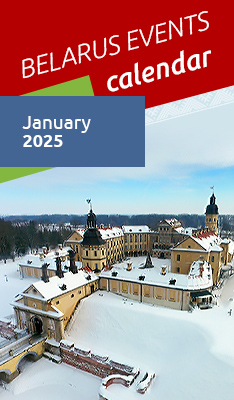




 print version
print version make home page
make home page add to bookmarks
add to bookmarks